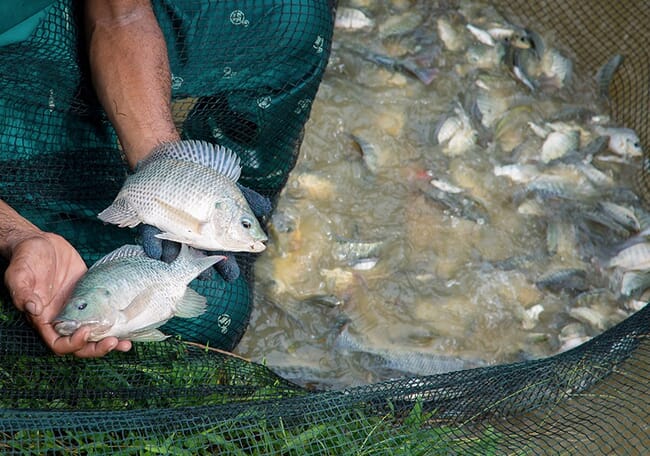The line, known as FLT 01, has been developed by Intrexon
and its subsidiary AquaBounty Technologies., the biotechnology company best known for its AquaAdvantage salmon strain. The tilapia were developed using gene editing techniques and do not contain any foreign DNA or a new combination of genetic material, which makes them exempt from GM regulation, according to Argentina's
National Advisory Commission on Agricultural Biotechnology (CONABIA).

© WorldFish
According to its developers, FLT 01 demonstrates a 70 per cent improvement in fillet yield, a 16 per cent increase in growth rate and a 14 per cent improvement in feed conversion ratio. It is believed to be one of the first gene edited food animals to receive a regulatory exemption due to its designation as a non-GMO.
As the companies look to move this product toward commercialization, however, they emphasise that “standard food and environmental safety considerations will still apply to this product prior to introduction”.
"We are focused on developing animal biotechnology for aquaculture and livestock through our subsidiaries to support sustainable food production in the US and abroad," said Dr Thomas Bostick, chief operating officer of Intrexon.
"We are pleased with Argentina's leadership in establishing a transparent and predictable process for the advancement of products developed with gene editing techniques and see this as a critical development for companies seeking to bring highly innovative solutions to the global market using powerful and highly precise genetic tools. Moreover, enhancing regulatory certainty for products derived from biotechnology is critical to the future of agricultural innovation."
Tilapia is forecast to be one of the highest growth production segments in aquaculture.
"AquaBounty is committed to advancing novel technologies into the marketplace to improve sustainability in aquaculture and through our productive collaboration with Intrexon have been able to make significant progress toward this goal," said Dr Ronald Stotish, CEO of AquaBounty. "We look forward to continuing our work with the Intrexon team and realizing the potential of biological engineering approaches to enhancing aquaculture productivity."




